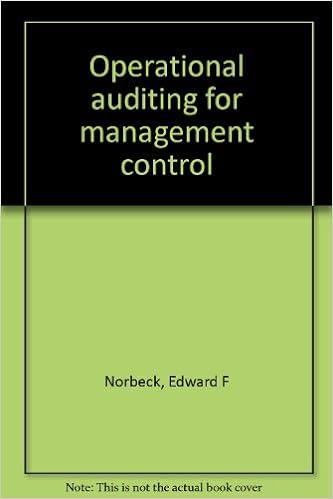



On December 31, 2017, Sage Company acquired a computer from Plato Corporation by issuing a $660,000 zero-interest-bearing note, payable in full on December 31, 2021. Sage Company's credit rating permits it to borrow funds from its several lines of credit at 12%. The computer is expected to have a 5-year life and a $77,000 salvage value. Prepare the journal entry for the purchase on December 31, 2017. (Round present value factor calculations to 5 decimal places, e.g. 1.25124 and the final answer to 0 decimal places e.g. 58,971. If no entry is required, select "No Entry" for the account titles and enter O for the amounts. Credit account titles are automatically indented when amount is entered. Do not indent manually.) Date Debit Account Titles and Explanation Credit December 31, 2017 Prepare any necessary adjusting entries relative to depreciation (use straight-line) and amortization (use effective-interest method) on December 31, 2018. (Round answers to O decimal places, e.g. 38,548. If no entry is required, select "No Entry" for the account titles and enter 0 for the amounts. Credit account titles are automatically indented when amount is entered. Do not indent manually.) Debit Date Account Titles and Explanation Credit December 31, 2018 (To record the depreciation.) December 31, 2018 (To amortize the discount.) Schedule of Note Discount Amortization Debit, Interest Expense Credit, Carrying Amount Date 12/31/17 12/31/18 12/31/19 12/31/20 12/31/21 Discount on Notes Payable of Note Prepare any necessary adjusting entries relative to depreciation and amortization on December 31, 2019. Round answers to O decimal places, e.g. 38,548. If no entry is required, select "No Entry" for the account titles and enter 0 for the amounts. Credit account titles are automatically indented when amount is entered. Do not indent manually. Account Titles and Explanation Date Debit Credit December 31, 2019 To record the depreciation.) December 31, 2019 (To amortize the discount.) Crane Company had bonds outstanding with a maturity value of $324,000. On April 30, 2017, when these bonds had an unamortized discount of $9,000, they were called in at 106. To pay for these bonds, Crane had issued other bonds a month earlier bearing a lower interest rate. The newly issued bonds had a life of 10 years. The new bonds were issued at 102 (face value $324,000) Ignoring interest, compute the gain or loss. Loss on redemption Ignoring interest, record this refunding transaction. (If no entry is required, select "No Entry" for the account titles and enter 0 for the amounts. Credit account titles are automatically indented when amount is entered. Do not indent manually.) Debit Account Titles and Explanation Credit (To record redemption of bonds payable) To record issuance of new bonds) Click if you would like to Show Work for this question: Open Show Work On December 31, 2017, Sage Company acquired a computer from Plato Corporation by issuing a $660,000 zero-interest-bearing note, payable in full on December 31, 2021. Sage Company's credit rating permits it to borrow funds from its several lines of credit at 12%. The computer is expected to have a 5-year life and a $77,000 salvage value. Prepare the journal entry for the purchase on December 31, 2017. (Round present value factor calculations to 5 decimal places, e.g. 1.25124 and the final answer to 0 decimal places e.g. 58,971. If no entry is required, select "No Entry" for the account titles and enter O for the amounts. Credit account titles are automatically indented when amount is entered. Do not indent manually.) Date Debit Account Titles and Explanation Credit December 31, 2017 Prepare any necessary adjusting entries relative to depreciation (use straight-line) and amortization (use effective-interest method) on December 31, 2018. (Round answers to O decimal places, e.g. 38,548. If no entry is required, select "No Entry" for the account titles and enter 0 for the amounts. Credit account titles are automatically indented when amount is entered. Do not indent manually.) Debit Date Account Titles and Explanation Credit December 31, 2018 (To record the depreciation.) December 31, 2018 (To amortize the discount.) Schedule of Note Discount Amortization Debit, Interest Expense Credit, Carrying Amount Date 12/31/17 12/31/18 12/31/19 12/31/20 12/31/21 Discount on Notes Payable of Note Prepare any necessary adjusting entries relative to depreciation and amortization on December 31, 2019. Round answers to O decimal places, e.g. 38,548. If no entry is required, select "No Entry" for the account titles and enter 0 for the amounts. Credit account titles are automatically indented when amount is entered. Do not indent manually. Account Titles and Explanation Date Debit Credit December 31, 2019 To record the depreciation.) December 31, 2019 (To amortize the discount.) Crane Company had bonds outstanding with a maturity value of $324,000. On April 30, 2017, when these bonds had an unamortized discount of $9,000, they were called in at 106. To pay for these bonds, Crane had issued other bonds a month earlier bearing a lower interest rate. The newly issued bonds had a life of 10 years. The new bonds were issued at 102 (face value $324,000) Ignoring interest, compute the gain or loss. Loss on redemption Ignoring interest, record this refunding transaction. (If no entry is required, select "No Entry" for the account titles and enter 0 for the amounts. Credit account titles are automatically indented when amount is entered. Do not indent manually.) Debit Account Titles and Explanation Credit (To record redemption of bonds payable) To record issuance of new bonds) Click if you would like to Show Work for this question: Open Show Work










